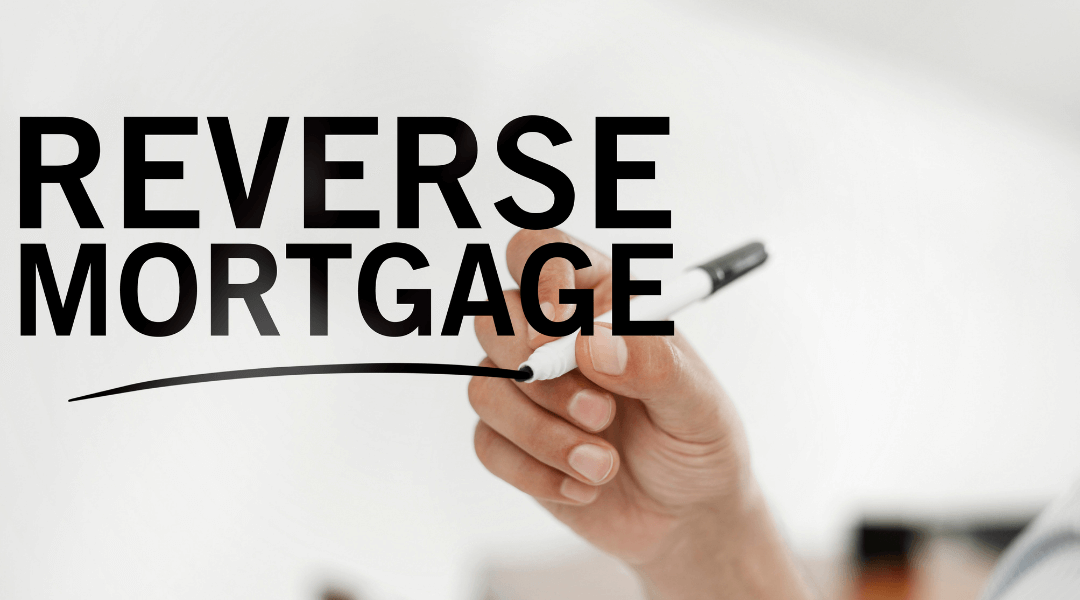Dispelling Myths about Reverse Mortgages
 .
.
This is my favorite picture of my mom. Not just because she is glowing, but because she hates taking pictures, so it’s as rare as seeing a unicorn to get her to pose for a camera. She also is very shy and has a natural tendency to question and be wary of, everything. That’s why I was pleasantly surprised to get her to entertain a conversation about reverse mortgages. To the point where we are going to do a reverse mortgage for purchasing a new home that is smaller, with a first-floor master suite. Mind you, it has been a 15-year conversation since she turned 62, the year she became eligible for a reverse mortgage. We were able to get to this point by dispelling many myths surrounding the unique program. In simple terms, the reverse mortgage allows someone who has considerable equity in their home to utilize it as they see fit, while not having a monthly mortgage payment. To go any deeper into the ins and outs of a reverse mortgage, one must overcome the myths associated with them.
Reverse Mortgages Myth #1—The Lender Owns The Home
Just as in a forward mortgage, the owner retains title and ownership during the life of the loan and can sell the home at any time. As long as the borrower maintains the home and pays their taxes, there is no way for a bank to take ownership of a home financed with a reverse mortgage. Early in the days of the reverse mortgage, there were propriety loans that allowed banks to take a home owner’s home if they were upside down on their reverse mortgage. Today, the majority of reverse mortgages are Home Equity Conversion Mortgages (HECM) loans, overseen by The Fair Housing Administration (FHA). There are many safety nets built in to protect the homeowner. One of the major advantages of a reverse mortgage over a forward is the timeline my brother and I will have to sell her home. With a forward mortgage, you essentially have 90 days without payment to sell before foreclosure proceedings can happen. In this super sellers’ market that’s not a worry. A reverse mortgage allows for what adds up to a year to sell the home. Being in the business, I know banks are not in the business of holding real estate. Even in the worst case of no sale in a year, and the slight chance the loan is more than the house is worth, the bank only gets what the home sells for, and more often than not, the house is worth more than the loan amount, and they are happy to work with borrowers on the sale since they are collecting interest.
Reverse Mortgages Myth #2—The Home Must Be Free and Clear Of Any Existing Mortgages
One of the operational standards of a reverse mortgage is paying off any existing leans. It is automatically factored into the amount of the reverse mortgage proceeds allotted to a borrower.
Reverse Mortgages Myth #3—Once Loan Proceeds Are Received, You Pay Taxes On Them
Reverse mortgage proceeds are tax-free, as they are not considered income. I always advise my clients to work in conjunction with their financial advisor, estate planner, tax consultant, and any government agency that can weigh in. For example, how it affects, or more importantly doesn’t affect Medicare/Medicaid.
Reverse Mortgages Myth #4— The Borrower Is Restricted On How To Use The Loan Proceeds
Once any existing mortgages are paid off, the borrower can use the proceeds remaining how they see fit…paying off other debts, home remodeling, paying medical expenses, supplement retirement income, invest it, help their adult children, or set up college funds for their grandchildren. The watchdog group for reverse mortgages is The National Reverse Mortgage Lenders Association and has a wonderful site that shares many stories about how funds are being used. My mom was concerned about leaving her house and its equity to my brother and I when she was gone. We assured her that we didn’t want or need it, and why not enjoy the money while she was alive. After all, she changed our pampers and kept us fed. She owed/owes us nothing from her home that she bought with her own money and paid down the mortgage without our assistance. It is why she will be purchasing a smaller home with a first-floor master suite. Instead of paying $250,000 cash for a new home to guarantee no mortgage, she will only have to use about $150,000 of her net proceeds and use the rest for her retirement. That’s $100,000 that she didn’t know she would have control of to use how she sees fit, and will still have no mortgage payment.
Reverse Mortgages Myth #5—Only Poor People Need Reverse Mortgages
Many wealthy borrowers are utilizing reverse mortgages as part of an overall retirement and estate planning strategy. As mentioned in Myth 3, reverse mortgages are a powerful tool when used in conjunction with a financial planner, real estate attorney, and tax consultant.
Many wealthy borrowers are utilizing reverse mortgages as part of an overall retirement and estate planning strategy. As mentioned in Myth 3, reverse mortgages are a powerful tool when used in conjunction with a financial planner, real estate attorney, and tax consultant.
Mortgage Consultation Today!
Categories
- Credit (4)
- FHA Loans (3)
- Finances (3)
- First Time Home Buyers (6)
- Grab Bag (7)
- Home Technology (1)
- Homebuying Tips (17)
- Inspiration (1)
- Insurance (3)
- Interest Rates (3)
- Loan Process (1)
- Mortgage Financing (14)
- Motivation (1)
- News (1)
- Press Release (8)
- Renovation (2)
- Self Employed (1)
- Tips & tricks (1)
- Uncategorized (134)
- USDA Loans (1)
- VA Loans (2)




